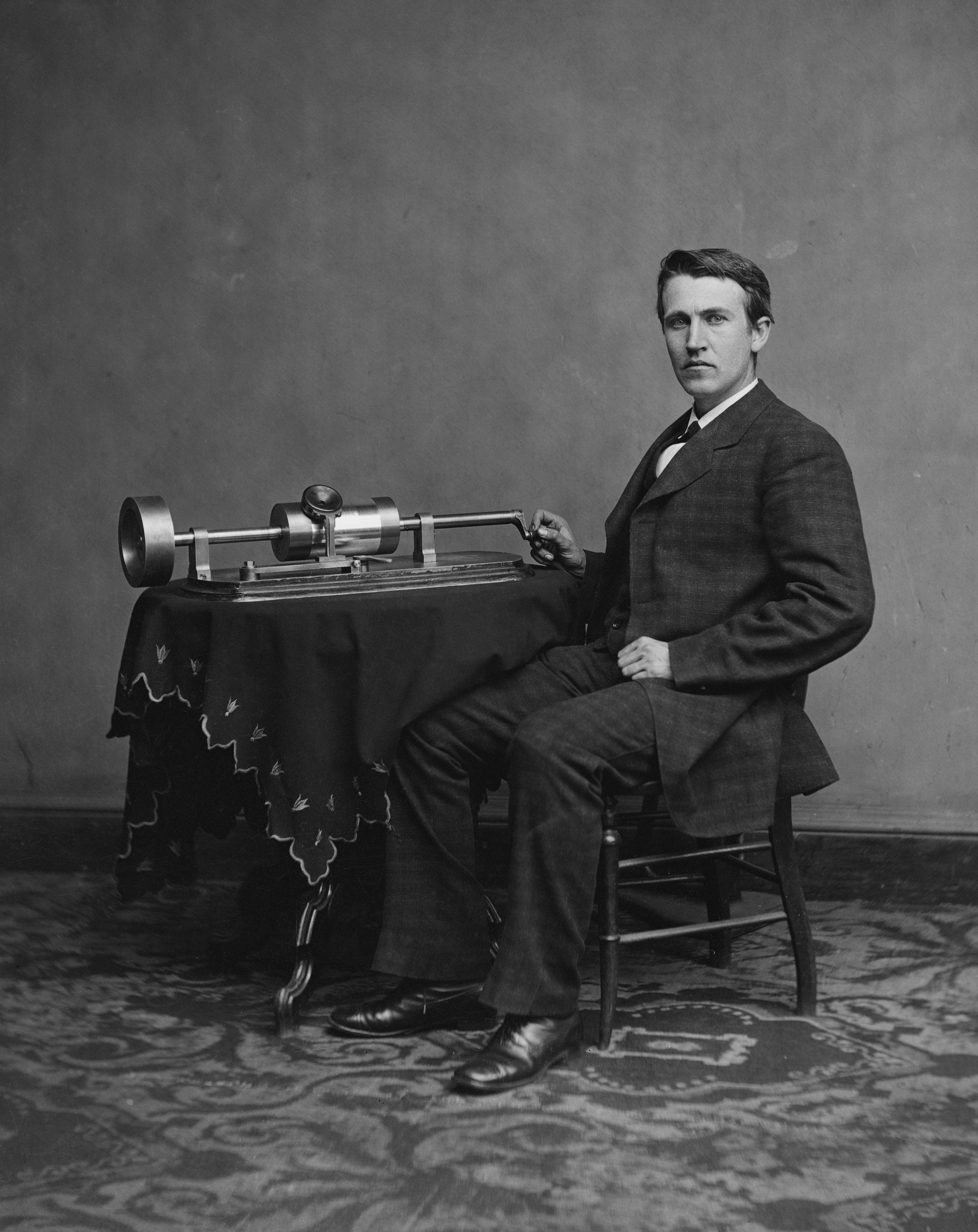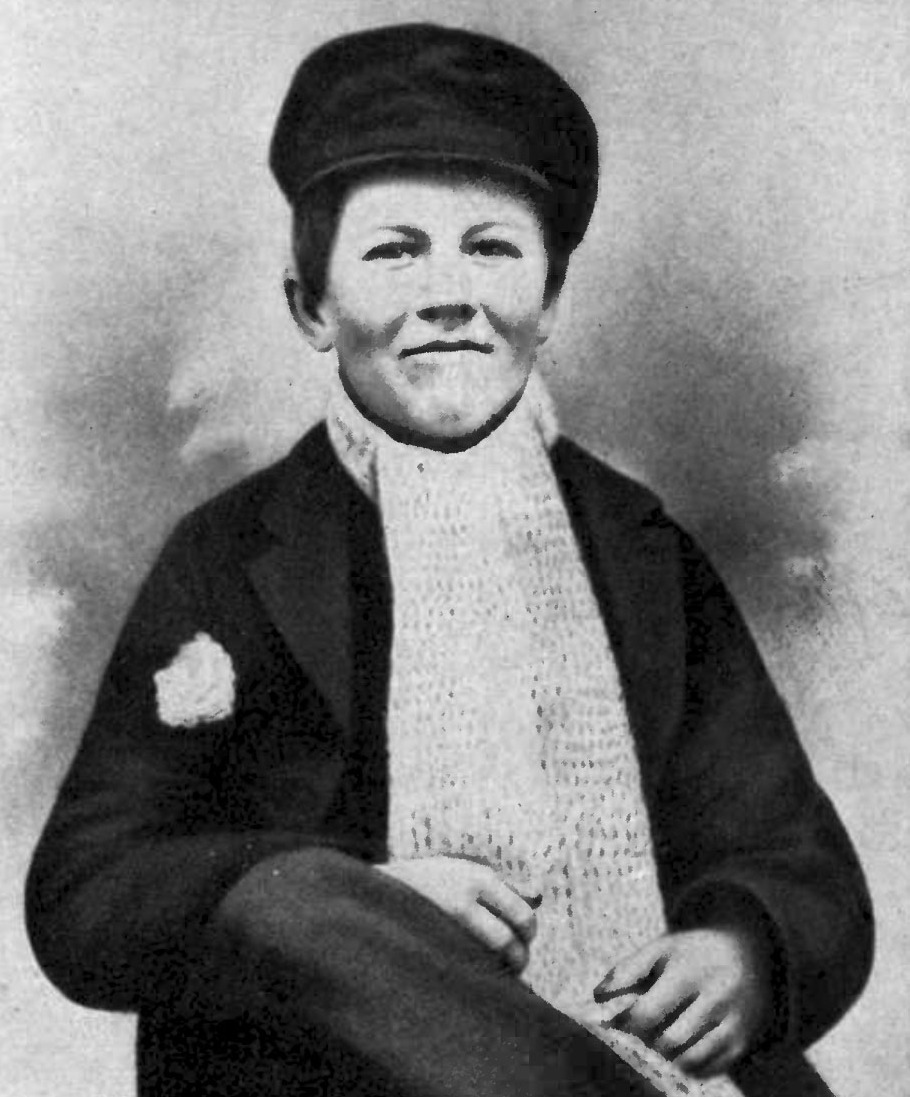|
1877 In Music
This article is about music-related events in 1877. Events *March 4 (February 20 O.S.) – The premiere of the ballet ''Swan Lake'' («Лебединое озеро», ''Lebedinoye ozero'') with score by Peter Ilyich Tchaikovsky is given at the Bolshoi Theatre in Moscow. It is not well received at this performance although remains in the repertory. *April 27 - Jules Massenet's opera ''Le Roi de Lahore'' premiers in Paris *April 30 – French poet Charles Cros describes a method of recording sound, the Paleophone. *May 7 – 29 – Wagner Festival at the Royal Albert Hall in London. Richard Wagner conducts some of his own works and Hans Richter makes his British conducting debut. *July 18 (July 6 O.S.) – Peter Ilyich Tchaikovsky marries Antonina Milyukova in Moscow. After 6 weeks, the couple separate permanently. *November 21 – Thomas Edison announces his invention of the phonograph in the United States. *December 30 – The premiere of Brahms' Symphony No. 2 is gi ... [...More Info...] [...Related Items...] OR: [Wikipedia] [Google] [Baidu] |
Royal Albert Hall
The Royal Albert Hall is a concert hall on the northern edge of South Kensington, London. One of the UK's most treasured and distinctive buildings, it is held in trust for the nation and managed by a registered charity which receives no government funding. It can seat 5,272. Since the hall's opening by Queen Victoria in 1871, the world's leading artists from many performance genres have appeared on its stage. It is the venue for the BBC Proms concerts, which have been held there every summer since 1941. It is host to more than 390 shows in the main auditorium annually, including classical, rock and pop concerts, ballet, opera, film screenings with live orchestral accompaniment, sports, awards ceremonies, school and community events, and charity performances and banquets. A further 400 events are held each year in the non-auditorium spaces. Over its 151 year history the hall has hosted people from various fields, including meetings by Suffragettes, speeches from Winston Churchi ... [...More Info...] [...Related Items...] OR: [Wikipedia] [Google] [Baidu] |
Ludwig Thuille
Ludwig Wilhelm Andreas Maria Thuille (Bolzano, Bozen, 30 November 1861 – 5 February 1907) was an Austrian composer and teacher, numbered for a while among the leading operatic composers of the so-called Munich School of composers, whose most famous representative was Richard Strauss.Thuille, Ludwig (preface). Repertoire & Opera Explorer. Musikproduktion Höflich. Biography Thuille was born in Bolzano, Bozen, then part of county of Tyrol, Tyrol, now in Italy. He lost both his parents in 1872 when he was 11, and moved in with his step-uncle in Kremsmünster, Austria. There he sang in the Benedictine choir and studied organ, piano, and violin. His musical abilities were exceptional, so in 1876 the widow of a composer/ conductor, Matthaus Nagiller, took him to Innsbruck for ...[...More Info...] [...Related Items...] OR: [Wikipedia] [Google] [Baidu] |
Vienna Philharmonic
The Vienna Philharmonic (VPO; german: Wiener Philharmoniker, links=no) is an orchestra that was founded in 1842 and is considered to be one of the finest in the world. The Vienna Philharmonic is based at the Musikverein in Vienna, Austria. Its members are selected from the orchestra of the Vienna State Opera. Selection involves a lengthy process, with each musician demonstrating their capability for a minimum of three years' performance for the opera and ballet. After this probationary period, the musician may request an application for a position in the orchestra from the Vienna Philharmonic's board. History Precursors and formation Until the 1830s, orchestral performance in Vienna was done by ''ad hoc'' orchestras, consisting of professional and (often) amateur musicians brought together for specific performances. In 1833, Franz Lachner formed the forerunner of the Vienna Philharmonic, the – an orchestra of professional musicians from the Vienna Court Opera (''Wiener Hof ... [...More Info...] [...Related Items...] OR: [Wikipedia] [Google] [Baidu] |
Vienna
en, Viennese , iso_code = AT-9 , registration_plate = W , postal_code_type = Postal code , postal_code = , timezone = CET , utc_offset = +1 , timezone_DST = CEST , utc_offset_DST = +2 , blank_name = Vehicle registration , blank_info = W , blank1_name = GDP , blank1_info = € 96.5 billion (2020) , blank2_name = GDP per capita , blank2_info = € 50,400 (2020) , blank_name_sec1 = HDI (2019) , blank_info_sec1 = 0.947 · 1st of 9 , blank3_name = Seats in the Federal Council , blank3_info = , blank_name_sec2 = GeoTLD , blank_info_sec2 = .wien , website = , footnotes = , image_blank_emblem = Wien logo.svg , blank_emblem_size = Vienna ( ; german: Wien ; ba ... [...More Info...] [...Related Items...] OR: [Wikipedia] [Google] [Baidu] |
Symphony No
A symphony is an extended musical composition in Western classical music, most often for orchestra. Although the term has had many meanings from its origins in the ancient Greek era, by the late 18th century the word had taken on the meaning common today: a work usually consisting of multiple distinct sections or movements, often four, with the first movement in sonata form. Symphonies are almost always scored for an orchestra consisting of a string section (violin, viola, cello, and double bass), brass, woodwind, and percussion instruments which altogether number about 30 to 100 musicians. Symphonies are notated in a musical score, which contains all the instrument parts. Orchestral musicians play from parts which contain just the notated music for their own instrument. Some symphonies also contain vocal parts (e.g., Beethoven's Ninth Symphony). Etymology and origins The word ''symphony'' is derived from the Greek word (), meaning "agreement or concord of sound", "concert of ... [...More Info...] [...Related Items...] OR: [Wikipedia] [Google] [Baidu] |
Brahms
Johannes Brahms (; 7 May 1833 – 3 April 1897) was a German composer, pianist, and conductor of the mid-Romantic period. Born in Hamburg into a Lutheran family, he spent much of his professional life in Vienna. He is sometimes grouped with Johann Sebastian Bach and Ludwig van Beethoven as one of the "Three Bs" of music, a comment originally made by the nineteenth-century conductor Hans von Bülow. Brahms composed for symphony orchestra, chamber ensembles, piano, organ, violin, voice, and chorus. A virtuoso pianist, he premiered many of his own works. He worked with leading performers of his time, including the pianist Clara Schumann and the violinist Joseph Joachim (the three were close friends). Many of his works have become staples of the modern concert repertoire. Brahms has been considered both a traditionalist and an innovator, by his contemporaries and by later writers. His music is rooted in the structures and compositional techniques of the Classical masters. Embe ... [...More Info...] [...Related Items...] OR: [Wikipedia] [Google] [Baidu] |
December 30
Events Pre-1600 *534 – The second and final edition of the Code of Justinian comes into effect in the Byzantine Empire. *999 – Battle of Glenmama: The combined forces of Munster and Meath under king Brian Boru inflict a crushing defeat on the allied armies of Leinster and Dublin near Lyons Hill in Ireland. * 1066 – Granada massacre: A Muslim mob storms the royal palace in Granada, crucifies Jewish vizier Joseph ibn Naghrela and massacres most of the Jewish population of the city. *1419 – Hundred Years' War: Battle of La Rochelle. *1460 – Wars of the Roses: Lancastrians kill the 3rd Duke of York and win the Battle of Wakefield. 1601–1900 *1702 – Queen Anne's War: James Moore, Governor of the Province of Carolina, abandons the Siege of St. Augustine. *1813 – War of 1812: British soldiers burn Buffalo, New York. *1816 – The Treaty of St. Louis between the United States and the united Ottawa, Ojibwa, and Potawatomi ... [...More Info...] [...Related Items...] OR: [Wikipedia] [Google] [Baidu] |
Phonograph
A phonograph, in its later forms also called a gramophone (as a trademark since 1887, as a generic name in the UK since 1910) or since the 1940s called a record player, or more recently a turntable, is a device for the mechanical and analogue recording and reproduction of sound. The sound vibration waveforms are recorded as corresponding physical deviations of a spiral groove engraved, etched, incised, or impressed into the surface of a rotating cylinder or disc, called a "record". To recreate the sound, the surface is similarly rotated while a playback stylus traces the groove and is therefore vibrated by it, very faintly reproducing the recorded sound. In early acoustic phonographs, the stylus vibrated a diaphragm which produced sound waves which were coupled to the open air through a flaring horn, or directly to the listener's ears through stethoscope-type earphones. The phonograph was invented in 1877 by Thomas Edison. Alexander Graham Bell's Volta Laboratory made s ... [...More Info...] [...Related Items...] OR: [Wikipedia] [Google] [Baidu] |
Thomas Edison
Thomas Alva Edison (February 11, 1847October 18, 1931) was an American inventor and businessman. He developed many devices in fields such as electric power generation, mass communication, sound recording, and motion pictures. These inventions, which include the phonograph, the motion picture camera, and early versions of the electric light bulb, have had a widespread impact on the modern industrialized world. He was one of the first inventors to apply the principles of organized science and teamwork to the process of invention, working with many researchers and employees. He established the first industrial research laboratory. Edison was raised in the American Midwest. Early in his career he worked as a telegraph operator, which inspired some of his earliest inventions. In 1876, he established his first laboratory facility in Menlo Park, New Jersey, where many of his early inventions were developed. He later established a botanical laboratory in Fort Myers, Florida, in co ... [...More Info...] [...Related Items...] OR: [Wikipedia] [Google] [Baidu] |
November 21
Events Pre-1600 * 164 BCE – Judas Maccabeus, son of Mattathias of the Hasmonean family, rededicates the Temple in Jerusalem, an event is commemorated each year by the festival of Hanukkah. (25 Kislev 3597 in the Hebrew calendar.) * 235 – Pope Anterus succeeds Pontian as the nineteenth pope. * 1386 – Timur of Samarkand captures and sacks the Georgian capital of Tbilisi, taking King Bagrat V of Georgia captive. 1601–1900 *1620 – Plymouth Colony settlers sign the Mayflower Compact (November 11, O.S.) * 1676 – The Danish astronomer Ole Rømer presents the first quantitative measurements of the speed of light. * 1783 – In Paris, Jean-François Pilâtre de Rozier and François Laurent d'Arlandes make the first untethered hot air balloon flight. *1789 – North Carolina ratifies the United States Constitution and is admitted as the 12th U.S. state. *1851 – Mutineers take control of the Chilean penal colony of Punta Arenas in th ... [...More Info...] [...Related Items...] OR: [Wikipedia] [Google] [Baidu] |
Antonina Milyukova
Antonina Ivanovna Miliukova (russian: Антонина Ивановна Милюкова; – ) was the wife of Russian composer Pyotr Ilyich Tchaikovsky from 1877 until his death in 1893. After marriage she was known as Antonina Tchaikovskaya. Early years Little is known of Antonina before she met Tchaikovsky. Her family resided in the Moscow area. They belonged to the local gentry but lived in poverty. The family was also a highly fractious one. Tchaikovsky tells us as much in a letter he wrote his sister Alexandra Davydova during his honeymoon: After three days with them in the country, I begin to see that everything I can't stand in my wife derives from her belonging to a completely weird family, where the mother was always arguing with the father—and now, after his death, does not hesitate to malign his memory in every way possible. It's a family in which the mother ''hates'' (!!!) some of her own children, in which the sisters are constantly squabbling, in which the o ... [...More Info...] [...Related Items...] OR: [Wikipedia] [Google] [Baidu] |





